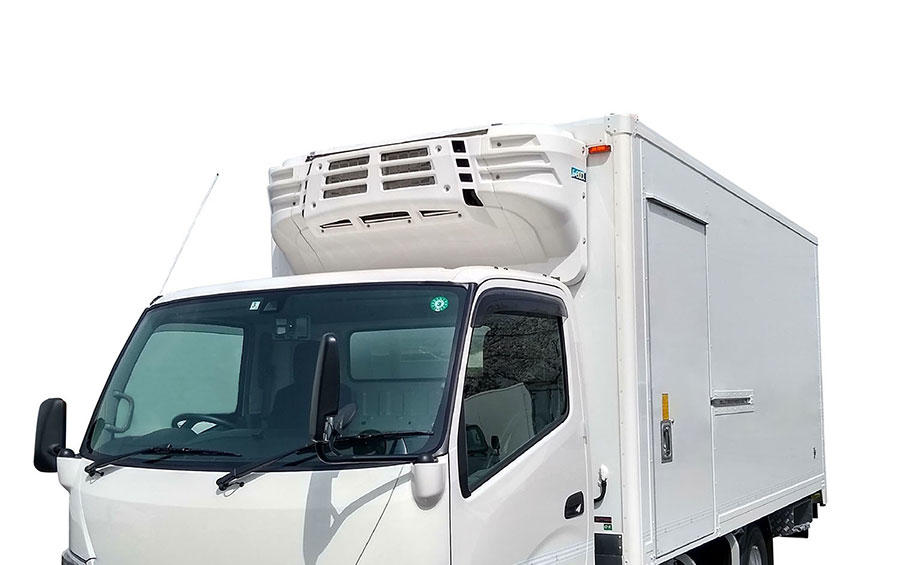Cutting-edge Cold Transport Companies for Effective Temperature Control
Wiki Article
Exactly How Cooled Trucks Operate to Guarantee Safe and Efficient Shipment of Perishable Item
Cooled vehicles play a critical role in the supply chain, guaranteeing that disposable products are moved securely and efficiently. Utilizing advanced refrigeration innovations and durable insulation, these automobiles maintain accurate temperature control, which is important for protecting the quality of sensitive products.Overview of Refrigerated Trucks
Refrigerated trucks, usually referred to as reefer trucks, play an essential role in the transportation of perishable items throughout numerous sectors. These customized lorries are developed to preserve specific temperature ranges, guaranteeing that items such as fresh fruit and vegetables, milk items, meat, and pharmaceuticals stay risk-free for usage and effective usage. The procedure of refrigerated vehicles is essential in minimizing perishing and prolonging the rack life of temperature-sensitive products.Reefer vehicles are outfitted with protected cargo locations that can maintaining reduced temperatures, which can be adjusted according to the kind of products being transferred. The lorries normally use a refrigeration unit powered either by the lorry's engine or an independent source of power, enabling regular temperature control during transportation.
In addition to temperature level maintenance, these vehicles are typically designed with innovative surveillance systems to track the interior environment, making certain compliance with health and wellness guidelines. Cooled vehicles add significantly to the supply chain, allowing prompt deliveries to customers, restaurants, and sellers. Their critical function highlights the value of reliable transportation services in today's worldwide market, where freshness is extremely important.
Key Refrigeration Technologies
Maintaining ideal temperature control in cooled trucks depends on a number of crucial refrigeration modern technologies that boost performance and integrity. Among the most common systems is the vapor-compression refrigeration cycle, which uses a refrigerant to absorb heat from the truck's inside, lowering the temperature level. This process includes a compressor, condenser, growth valve, and evaporator, working in tandem to circulate the cooling agent and keep a constant environment.Another noteworthy innovation is the usage of eutectic plates, which keep and release thermal energy. These plates are loaded with a phase-change product that strengthens at a particular temperature, giving a secure air conditioning resource. This technique not only improves power effectiveness but additionally lowers the requirement for continuous power supply throughout transit.
Additionally, advanced insulation materials, such as polyurethane foam, substantially boost the thermal efficiency of chilled vehicles, minimizing temperature changes throughout filling and unloading. Some contemporary cooled vehicles likewise integrate telematics systems, enabling for real-time surveillance of temperature level and performance, thus making sure conformity with security requirements. With each other, these technologies make certain the risk-free transport of perishable items while maximizing functional effectiveness and lessening energy consumption.
Temperature Control Devices
Effective temperature level control mechanisms are vital in guaranteeing the integrity of disposable goods throughout transport. Chilled trucks make use of innovative modern technologies to preserve regular temperature arrays, stopping spoilage and making sure item security - transport refrigeration.Furthermore, modern cooled vehicles are equipped with digital thermostats and programmable temperature level tracking systems. These systems enable real-time tracking of interior temperature levels, providing alerts if the temperature level drifts from the predetermined variety. This capacity is vital for conformity with health and wellness guidelines.
Insulation additionally plays a pivotal function view in temperature level control. High-quality insulation materials lessen heat exchange, protecting the wanted inner problems. Furthermore, air flow administration within the freight location is crafted to ensure uniform temperature distribution, protecting against hotspots that could jeopardize item honesty (refrigerated truck companies).
Finest Practices for Packing

First, it is vital to pre-cool the truck before packing. This method enables the temperature control system to stabilize, creating a perfect atmosphere for disposable items. Next, items must be packed in a way that promotes airflow. Stay clear of overwhelming and obstructing vents, as directory this can lead to temperature variations and hotspots.
Making use of pallets or shelving can help in arranging things, making sure that much heavier products are positioned at the base to stop crushing lighter items. Additionally, it is important to segregate different kinds of items, especially those with varying temperature level requirements, to avoid cross-contamination and perishing.
Finally, securing the load with bands or nets will certainly stop movement throughout transit, therefore minimizing the threat of damage and preserving the integrity of temperature-sensitive items. By adhering to these finest practices, drivers can ensure effective and safe delivery of subject to spoiling items while taking full advantage of the efficiency of their cooled vehicles.
Challenges and Solutions in Transportation
Transferring products in chilled trucks offers several difficulties that can impact the stability of temperature-sensitive items. One significant problem is temperature level fluctuations, which can happen as a result of equipment malfunction or incorrect filling practices. These fluctuations can cause spoilage, compromising the high quality of subject to spoiling goods. Additionally, road problems and hold-ups can further exacerbate temperature control problems, especially during prolonged transportation times.To address these challenges, executing robust tracking systems is important. Advanced telemetry can give real-time temperature level information, signaling vehicle drivers to any kind of that site abnormalities. Normal upkeep of refrigeration devices makes sure ideal performance and decreases the danger of malfunctions. Moreover, training workers on finest loading and discharging practices can minimize the threat of temperature level variances.
One more key remedy includes route optimization. Making use of GPS and traffic administration technologies can aid chauffeurs select one of the most reliable paths, decreasing transportation times and lessening direct exposure to negative conditions. Working together with reputable logistics partners who focus on chilly chain honesty is additionally vital for making certain that products continue to be within needed temperature level varieties.

Conclusion
In conclusion, refrigerated vehicles play a vital role in the risk-free and reliable transport of subject to spoiling goods. Utilizing advanced refrigeration innovations and reliable temperature level control devices ensures that products stay within called for temperature level ranges.
Report this wiki page